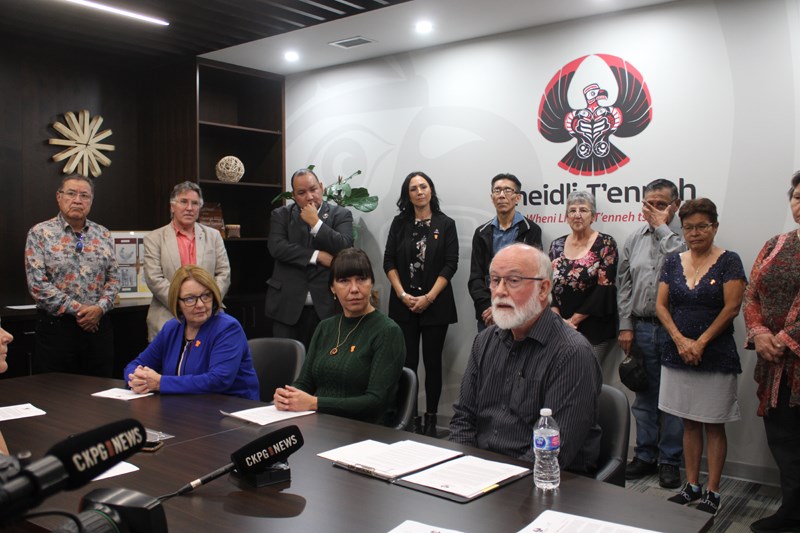The society that operated Camp Trapping, a facility for young offenders, is giving the camp to Lheildi T’enneh First Nation.
At a press conference, the Cariboo Action Training Society (CATS) announced that it has transferred the assets of Camp Trapping to the Lheildi T’enneh.
The facility began in the early 1970s as a dream of Bruce Hawkenson who was working as a probation officer. He saw the need to provide young offenders with an opportunity to learn skills and build confidence versus remain incarcerated in a youth containment facility.
It operated until June 2021, when it shut down because it was no longer getting referrals from the youth justice system.
At its peak, the four-month program served 14 kids, with an intake of new students every two months.
In the last five years of its existence, the camp became a program exclusively for Indigenous kids and CATS President Bob Plewes said they modified the program to make it culturally relevant.
“In the last 10 to 15 years, the number of kids in the youth justice system has declined significantly, they've closed youth custody centres and closed residential attendance programs. That's a good news story, because it means less kids in custody,” said Plewes.
“The sad part for us is that we don't get a chance to be involved in changing kids lives like we did at camp for many, many years.”
He said Camp Trapping was a highly structured program where students were challenged through wilderness trips, encouraged to set goals, and supported through a positive peer culture.
“The feedback was very positive over the years, I remember kids crossing the street to see me and telling me that it was a life-changing experience.”
He said there are now many community-based programs that support youth, which is more effective than sending kids away for treatment or rehabilitation.
“We are sad to see the end of Camp Trapping, because those of us who have been involved at the board level and have been staff members over the years believe that the program, we felt that was effective,” said Plewes.
“We just simply are no longer needed to fill that niche. It was an alternative to custody, and it no longer is needed because of the decline in numbers in the system.”
In deciding what to do with the camp’s asssets, the board met with MLA Shirley Bond who suggested they approach Lheidli T’enneh First Nation as Camp Trapping is located on the nation's traditional territory.
Chief Dolleen Logan and her team accepted the offer to transfer the leased land, buildings, and inventory worth an estimated value of approximately $800,000.
He said the future of Camp Trapping is in great hands with Lheidli T’enneh and they support whatever future use of Camp Trapping the nation determines.
“We also will be forwarding the remainder of our financial assets once we close off our books entirely,” he said before offering Chief Logan a cheque for $50,000, which is their first instalment from their reserved funds set aside for improvements at the camp.
““I was very pleased to meet with the Cariboo Action Training Society to discuss the future of Camp Trapping. After some meaningful discussion we agreed that reaching out to the Lheidli T’enneh First Nation might make a good starting point,” said MLA Shirley Bond.
“Today is significant day as the future of Camp Trapping will now become part of the vision that the Lheidli T’enneh have and I know that they will carefully consider the history and impact Camp Trapping had, as they determine next steps.”
Chief Logan said the offer came as a surprise, but they are grateful to accept the lease of the land, buildings and inventory and they are considering several options for the future use of Camp Trapping.
“I've personally know people that have been there and it has changed their lives and it's positive and that's what Lheildi T’enneh wants to do is continue on with the positive we've had,” said Logan.
“There's so many cultural things that we can do out there and it's in our territory. It's right there and it's an amazing place.”
She said she will meet with Lheildi T’enneh council and staff to discuss ideas, as well as reaching out to the Lheildi T’enneh community to find out what their ideas are.
“But I know it will be a positive, something positive.”



